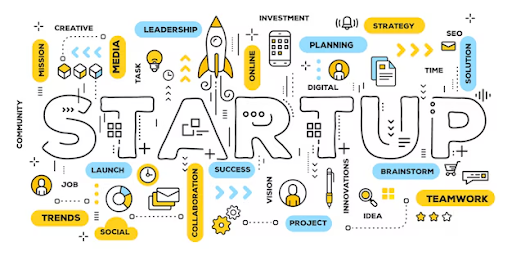The exhilaration of starting a business can be incredibly fulfilling for someone. The “tech” part? Not so much. While some of you have great ideas, prepare to get lost when skilled developers start talking about tech stacks, APIs, or cloud servers. In this article, we explain a few fundamental technology concepts in simple language so that you and other startup founders alongside make educated choices without feeling overwhelmed by jargon.
Understanding Why Founders Should Know The Basics Of Technology
There’s nothing wrong at all, for whatever reason, if you choose not to become a developer. The silver lining is, you don’t have to become one. Still, understanding basic concepts of technology will be necessary for running a business. Here are a few of the reasons why having such understanding is helpful:
- Choosing Actions with Greater Context: With only a basic understanding of technology, you can make rational decisions with context, such as hiring a programmer or purchasing software.
- Stretch Aids Addressing Financial Mismanagement: The blunder of allocational mismanagement of resources deceptively sprains, with little to no technology understanding, tools and services that are weakly essential, bordering on justifiable, unarguably support the claim, this spending in ‘promotion of business’ is fundamentally required for the company.
Let’s break it all down into easy, founder-friendly pieces.
1. Picking the Right Tech Stack
A tech stack is just a set of tools used to build your product. Think of it like the ingredients in a recipe. There is no need to know every detail, but understanding the basics helps.
The Main Parts:
- Frontend: What your users see (like the design and buttons)
- Backend: What happens behind the scenes (like saving data)
- Database: Where all the information is stored
- Hosting: Where your website or app lives online
Tips:
- Use popular tools, which make it easier to find developers and fix problems.
- Keep it simple in the beginning. Don’t overcomplicate it.
- If you’re building fast, go with tools that help you launch quickly, even if they’re not perfect long-term.
Still unsure? This is where TechLounge can step in and guide you based on your goals and budget.
2. What Is Cloud Computing?
You’ve probably heard “the cloud” a lot. But what does it mean? It means using internet-based space and tools instead of owning servers.
The Basics:
- IaaS: You rent virtual servers (like AWS EC2)
- PaaS: You rent tools that help you build apps easily (like Firebase or Heroku)
- SaaS: Software you use online (like Google Workspace or Slack)
Why You Should Care:
- You save money by only paying for what you use.
- Your product can grow easily when more people start using it.
- The cloud lets you build and grow without all the hassle.
3. APIs and Integrations Made Easier
APIs help your app talk to other apps. That’s all there is to it.
A Few Examples:
- You want to send a text when someone signs up → use an SMS API like Twilio.
- You want to accept payments → use a payment API like Stripe.
- You want people to log in using Google → use Google’s login API.
Why This Matters:
- APIs save you time. You can use tools and solutions instead of creating it all from scratch.
- There are also no-code tools like Zapier that let you connect apps without needing a developer.
APIs are like shortcuts; they help you get things done faster and better.
4. Don’t Ignore Cybersecurity
It’s easy to think cybersecurity is for big companies, but startups are often easier targets.
A Few Simple Things You Can Do:
- Turn on multi-factor authentication (MFA) wherever you can.
- Confirm your website is secured with SSL, and check for the padlock icon in the browser.
- Backup your data regularly.
Keep it straightforward. Keeping things secure can be simple and affordable for startups, too.
5. How Can AI and Automation Help Your Startup?
Building AI from scratch isn’t needed. There are plenty of tools out there that can make your work easier.
Use Cases:
- Customer support: Use a chatbot to answer common questions.
- Marketing: Use tools that write social media posts or emails for you.
- Analytics: Get useful reports on how users behave on your app or site.
Understanding every part of AI isn’t necessary. Focus instead on how it can help you work smarter and expand faster.
6. Build Smart: MVPs, Agile, and Testing Early
Avoid building everything up front. The best startups start with basics, test ideas fast, and make changes as they learn.
Key Terms:
- Agile: A way of working in short, quick cycles.
- MVP (Minimum Viable Product): A basic version of your product that works.
- Iteration: Making small changes based on feedback.
Why it’s useful: You can launch faster, save money, and get real feedback from real users. This helps you create something your users truly need. Scope, budget, and timeline are some of the things that are better to be thought of early specifically when trying to estimate the cost of building an MVP.
Tools like Trello, Notion, or ClickUp can help you stay organised.
7. Use No-Code and Low-Code to Start
Hiring developers is great, but it’s not always possible early on. No-code tools let you build and test ideas without needing a tech team.
Some Handy Tools:
- Webflow: Build websites visually.
- Bubble: Make full apps without coding.
- Airtable: Manage data more intelligently than traditional spreadsheets.
You can go from idea to working product in days, not months. Once your idea is working, you can upgrade to a more custom build with help from experts.
8. How to Work with Developers (Even If You’re Not One)
You might not speak code, and that’s okay. What matters is how well you work with the people who do.
Tips:
- Be clear about what you want. Tools like Figma and Notion help.
- Break tasks into small steps, so progress is easier to track.
- Ask for updates in plain language.
- Focus on what matters to your customers.
When hiring freelancers, ask for samples of their past completed projects. If you’re looking to grow fast, a tech partner like TechLounge can bring the right team and systems in place.
To Sum It Up: You Just Need to Know What Matters
If you’re a startup founder feeling overwhelmed by tech jargon or struggling to make sense of your product’s technical needs, start with these basics. Build your knowledge gradually, rely on trusted tech partners, and never hesitate to ask for clarity. The more you bridge the gap between business vision and technical execution, the more powerful and resilient your startup will become. Remember, tech literacy is a journey, not a destination. Every small step you take toward understanding technology adds up to stronger leadership and a better chance at startup success.
Author Name:- Harikrishna Kundariya
Biography:- Harikrishna Kundariya, is a marketer, developer, IoT, Cloud & AWS savvy, co-founder, and Director of eSparkBiz, a Software Development Company. His 14+ years of experience enables him to provide digital solutions to new start-ups based on IoT and SaaS applications.




